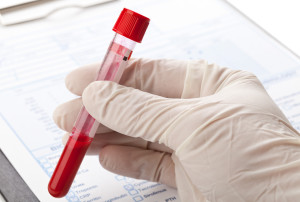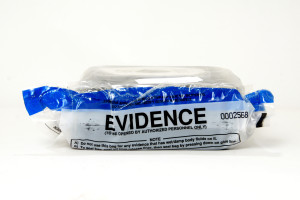 Brynn Campbell was involved in a head on-crash which killed the 83-year-old woman driving the other car. Campbell was taken to the hospital, and hospital staff performed a urine test. Although Campbell showed no obvious signs of impairment, a police officer went to the hospital and asked the nurse for the urine test results. The results showed Campbell’s alcohol level was well over the limit, according to the Global News. The officer then obtained a search warrant to obtain Campbell’s urine samples and have them tested. Campbell was charged with vehicular homicide. She was acquitted by the trial court, and the prosecution appealed.
Brynn Campbell was involved in a head on-crash which killed the 83-year-old woman driving the other car. Campbell was taken to the hospital, and hospital staff performed a urine test. Although Campbell showed no obvious signs of impairment, a police officer went to the hospital and asked the nurse for the urine test results. The results showed Campbell’s alcohol level was well over the limit, according to the Global News. The officer then obtained a search warrant to obtain Campbell’s urine samples and have them tested. Campbell was charged with vehicular homicide. She was acquitted by the trial court, and the prosecution appealed.
Articles Tagged with Urine Testing
Constitutional Limitations On Crime Lab Reports In Ohio DUI / OVI Cases

The last post in this blog described how crime lab reports are used in Ohio DUI / OVI cases. In a nutshell: a lab technician issues a report identifying the quantity of alcohol or drugs in a person’s blood or urine, and that report is given to the prosecutor. Ohio legislation requires the prosecutor to provide the report to the defense attorney. Ohio legislation, however, is not the only law impacting the use of these reports. The Constitutions of Ohio and the United States also provide limitations on the use of crime lab reports in Ohio DUI / OVI cases.
What Does It Mean To “Witness” A Urine Sample In Ohio DUI / OVI Cases?

Most police officers probably do not go to work hoping to witness a suspect provide a urine sample. It’s likely not one of those things they go home and share with their family and friends. But it’s one of those things Ohio law requires in OVI cases. If a suspect is arrested and asked to provide a urine sample, an Ohio Department of Health regulation states, “The collection of the urine specimen must be witnessed”. The precise meaning of “witnessed” was the subject of a recent case in an Ohio court of appeals.
What Happens When Two Tests Give Different Results In An Ohio DUI/OVI?
 Joe was arrested for DUI / OVI, and the officer had Joe take a breath test and a urine test. The breath test showed an alcohol level under Ohio’s limit, and the urine test showed an alcohol level over Ohio’s limit. Based on the urine test result, Joe was prosecuted for operating a vehicle with a prohibited concentration of alcohol in his system. Should Joe be found guilty of OVI?
Joe was arrested for DUI / OVI, and the officer had Joe take a breath test and a urine test. The breath test showed an alcohol level under Ohio’s limit, and the urine test showed an alcohol level over Ohio’s limit. Based on the urine test result, Joe was prosecuted for operating a vehicle with a prohibited concentration of alcohol in his system. Should Joe be found guilty of OVI?
Can We Trust Crime Lab Results In Ohio DUI/OVI Cases?
 Today’s report regarding the conduct of a forensic scientist employed by the state of Ohio demonstrates the danger of the government enforcing laws without effective checks and balances. Forensic scientist G. Michele Yezzo worked for over 30 years as a laboratory technician for the Ohio Bureau of Criminal Investigation (BCI). During that time, she analyzed evidence in criminal cases and testified in court regarding those analyses. The feature story in The Columbus Dispatch says she now, “stands accused of slanting evidence to help cops and prosecutors build their cases.”
Today’s report regarding the conduct of a forensic scientist employed by the state of Ohio demonstrates the danger of the government enforcing laws without effective checks and balances. Forensic scientist G. Michele Yezzo worked for over 30 years as a laboratory technician for the Ohio Bureau of Criminal Investigation (BCI). During that time, she analyzed evidence in criminal cases and testified in court regarding those analyses. The feature story in The Columbus Dispatch says she now, “stands accused of slanting evidence to help cops and prosecutors build their cases.”
U.S. Supreme Court Decides Constitutionality Of Warrantless Blood Tests And Breath Tests In DUI Cases
 Last week, the United States Supreme Court released a decision in a trio of cases involving DUI refusal laws. A previous article in this blog gives a preview of the cases. To decide the outcomes of those cases, the court analyzes whether search warrants are required before law enforcement officers can administer breath tests and blood tests. Based on that analysis, the Court decides whether states can make it illegal to refuse chemical tests in DUI cases. The Court’s decision will impact Ohio DUI/OVI cases.
Last week, the United States Supreme Court released a decision in a trio of cases involving DUI refusal laws. A previous article in this blog gives a preview of the cases. To decide the outcomes of those cases, the court analyzes whether search warrants are required before law enforcement officers can administer breath tests and blood tests. Based on that analysis, the Court decides whether states can make it illegal to refuse chemical tests in DUI cases. The Court’s decision will impact Ohio DUI/OVI cases.
Person Medically Incapable Of Urinating Is Not ‘Refusing’ The Test
 A judge in Columbus, Ohio found a man to be in violation of probation because the man was unable to urinate upon request. The judge was aware the defendant, Mr. Hand, had medical problems which caused urinary difficulties and was taking medication designed to increase his urination. Nevertheless, the judge concluded Mr. Hand’s inability to urinate constituted a “refusal” to submit to a urine test. Individuals placed on probation for DUI/OVI in Ohio do not have this kind of experience, ordinarily. But this was no ordinary case.
A judge in Columbus, Ohio found a man to be in violation of probation because the man was unable to urinate upon request. The judge was aware the defendant, Mr. Hand, had medical problems which caused urinary difficulties and was taking medication designed to increase his urination. Nevertheless, the judge concluded Mr. Hand’s inability to urinate constituted a “refusal” to submit to a urine test. Individuals placed on probation for DUI/OVI in Ohio do not have this kind of experience, ordinarily. But this was no ordinary case.
Refrigerating Blood And Urine Samples In Ohio DUI/OVI Cases
 When a person is arrested for DUI/OVI in Ohio, the arresting officer typically asks the person to submit to a breath, blood or urine test. For a test result to be admissible in court, the test must be administered in compliance with regulations issued by the Ohio Department of Health. One regulation requires refrigeration of blood and urine samples, and that regulation was the subject of a recent case decided by the Ohio Supreme Court.
When a person is arrested for DUI/OVI in Ohio, the arresting officer typically asks the person to submit to a breath, blood or urine test. For a test result to be admissible in court, the test must be administered in compliance with regulations issued by the Ohio Department of Health. One regulation requires refrigeration of blood and urine samples, and that regulation was the subject of a recent case decided by the Ohio Supreme Court.
Forensic Gas Chromatography For Lawyers
 Last week, I completed a short course in gas chromatography. Completing the course reminded me of what Stephen Covey used to say: “To know and not to do is really not to know.” He is so right. It’s one thing to know the law of blood and urine testing. It’s a very different thing to know the science of blood and urine testing. To know the science, you have to do the science, and lawyers typically do not have the opportunity to do the science. Now, however, lawyers get to do the science of gas chromatography in a short course presented by the American Chemical Society.
Last week, I completed a short course in gas chromatography. Completing the course reminded me of what Stephen Covey used to say: “To know and not to do is really not to know.” He is so right. It’s one thing to know the law of blood and urine testing. It’s a very different thing to know the science of blood and urine testing. To know the science, you have to do the science, and lawyers typically do not have the opportunity to do the science. Now, however, lawyers get to do the science of gas chromatography in a short course presented by the American Chemical Society.
 Columbus OVI/DUI Attorney Blog
Columbus OVI/DUI Attorney Blog

